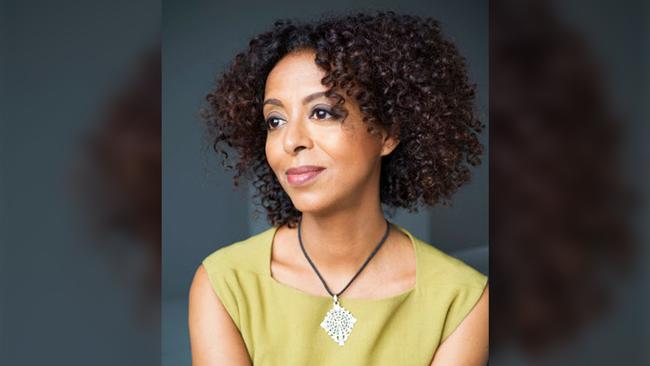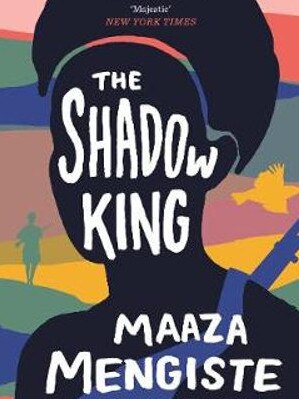Novelist James Bradley shares his Booker Prize pick
Predicting the winner is always difficult but James Bradley says this debut novelist is the favourite.

In the lead-up to the announcement of the longlist for this year’s Booker Prize, most of the discussion turned on Hilary Mantel. Given Mantel had won the prize for the first and second volume of her Cromwell trilogy, would the judges feel obliged to hand her an unprecedented third Booker for the final volume, The Mirror and the Light? And if they didn’t, would that decision be seen as some kind of statement, or worse yet a deliberate slight? For a time there was even talk Mantel had been pressured to withdraw the novel to even the field (or perhaps prevent an embarrassment for her).
Yet when the longlist appeared, it became clear the judges were playing a rather different game. Despite impressive releases from established authors such as Ali Smith, Andrew O’Hagan and Jenny Offil, the longlist of 13 included eight debut novels. It was also the most diverse longlist in the prize’s history, a quality that was carried over into the shortlist, on which four of the six short-listed writers were women and four were people of colour, but none – slightly shockingly – were Hilary Mantel.
It was a bold decision, but it disposed of the Jupiter-sized problem of The Mirror and the Light with surprising efficiency. With Mantel eliminated the prize was suddenly no longer all about her, returning attention to the other books on the shortlist.
Yet it also spoke to a larger generational and political shift in the literary landscape, a devolution of authority from older, mostly white writers, to writers whose voices and identities more accurately reflect the world we inhabit.
This sense of a baton being passed is amplified by the fact that four of the six novels short-listed – Diane Cook’s The New Wilderness, Avni Doshi’s Burnt Sugar, Douglas Stuart’s Shuggie Bain and Brandon Taylor’s Real Life – are debuts, while the other two, Maaza Mengiste’s The Shadow King and Tsitsi Dangarembga’s This Mournable Body are their respective authors’ second and third books.
Of the four debuts, much of the early attention focused on Real Life. Apparently written in less than five weeks, it turns the trappings of the campus novel inside-out to reveal the often-unseen assumptions about race, privilege and sexuality that inhabit its conventions.
Set at an unnamed university in the American mid-west (perhaps not coincidentally Taylor is a graduate of the University of Iowa’s writers’ workshop), it focuses on one weekend in the life of Wallace, a young, black student working on a biochemistry doctorate.

In the opening pages Wallace finds himself becoming involved with one of his friends, a troubled fellow student with a complex history, and soon afterwards discovers somebody has deliberately contaminated one of his experiments, ruining months of work. Over the next two days these events force him to come to terms not just with the legacy of his childhood, but the psychic trauma of day-to-day life in a world in which he is a permanent outsider.
Real Life depicts the corrosive effects of racism with real power, capturing its daily psychic burden and the subtle and not so subtle ways it shapes and poisons the experiences and identity of those who must navigate it. Its exploration of the lingering effects of trauma and emotional and material deprivation is similarly intelligent and uncomfortable. And it offers a fascinating and finely wrought portrait of the oddly repetitive rhythms of the lab work and research central to Wallace’s life.
Yet Wallace’s passivity and emotional paralysis also make it an oddly frustrating book in some respects, even if those very qualities are themselves symptoms of the legacy of visible and invisible violence he bears within himself.

Shuggie Bain also explores the effect of childhood trauma, in this case the effects of addiction and violence. At its heart is the relationship between Shuggie, a boy growing up in Scotland in the 1980s, and his alcoholic mother, Agnes.
Beautiful but restless and unsatisfied, Agnes abandons her husband for Shuggie’s father, and is then abandoned herself, left to raise three children in a ruined mining town where neither she nor Shuggie are accepted.
Stuart’s depiction of the impact of Agnes’s alcoholism on Shuggie is devastating, capturing not just the damage her behaviour inflicts on her son, but the bonds of dependency that bind the two of them together.
Stuart is unsentimental about the effects of Agnes’s addiction, not just the poverty, but the wretchedness and abjection of its physical manifestations. Yet the book’s real power does not lie in its unsparing depiction of Agnes’s descent, but in its immense capacity for forgiveness and love, qualities that are made even more remarkable by the fact the book is strongly autobiographical.
Like Shuggie Bain, Burnt Sugar centres on a highly dysfunctional relationship between a mother and a child, although it manifests little of the forgiveness of Stuart’s novel. Instead, as its unforgettable opening line – “I would be lying if I said my mother’s misery has never given me pleasure” – suggests, it explores fury and resentment.
The mother in Burnt Sugar is Tara, who in the 1980s abandoned her husband and joined an ashram, a decision that led to her daughter, Antara, growing up in a state of constant neglect amid the unsettling upheaval of the cult.

But decades later, as Tara slips deeper and deeper into the confusion and agitation of dementia, Antara is forced to grapple with her feelings about her mother and their past.
Burnt Sugar is electrically intelligent and often almost unbearably intense. Antara’s anger is given shape and purpose both by the difficulty of caring for her mother, and her sense of the impossibility of achieving any kind of reconciliation with the past.
But it is also directed at herself, her failure to make something of her own talents and the hypocrisy of her comfortably middle-classed life. And while the sections that deal with Antara’s present are less compelling than those exploring her relationship with her mother and the past, Burnt Sugar is nonetheless a work of deep moral and psychological acuity.
Mothers, daughters and decisions to abandon society also lie at the heart of the fourth of the debut novels on the shortlist, The New Wilderness.
Set in a near-future in which society has entered a seemingly terminal decline, the novel focuses on Bea, a mother who elects to leave the city with her daughter, Agnes, to join an experiment in which a small group of people live as hunter-gatherers in the last remaining tract of wilderness.

As a character study The New Wilderness is highly effective. Like Margaret Atwood, Cook has a keen eye for human weakness and capacity for self-deception, and although she lacks Atwood’s sly wit, she deftly skewers the dynamics of the group as it evolves and changes. However the speculative elements in the book are less successful, and the tropes often feel rather too familiar, making the novel as a whole less satisfying than one might hope.
The two remaining novels on the shortlist, The Shadow King and This Mournable Body each explore African history and the legacies of colonialism, albeit from different perspectives.
The Shadow King takes place against the backdrop of the Italian invasion of Ethiopia in 1935. Moving between the perspectives of characters on both sides of the conflict, it uses a range of voices and techniques, to depict the shifting textures of the experience, especially for the women whose stories so often go untold.

Despite its fractured, prismatic structure, there are moments when The Shadow King feels like a relatively conventional historical novel, especially in its first half. But as the pieces begin to coalesce it takes on real power, capturing not just the violence and horror of the war, but its aftermath.
This Mournable Body also takes place in the aftermath of a war, this time the Zimbabwean war of liberation. Set in the late 1990s, it is a sequel to Tsitsi’s acclaimed and highly autobiographical 1988 novel, Nervous Conditions, which depicted the childhood of its narrator, Tambu, amid the upheaval of the conflict that led to the establishment of modern-day Zimbabwe.

Yet where Nervous Conditions is distinguished by the urgency of Tambu’s voice and her determination to succeed, This Mournable Body is a much more ambivalent creation. Marooned in the suburbs of Harare, the recently-unemployed Tambu plots and schemes to find her way out of the life her world offers her, a process that leads her from teaching to the asylum, and finally, back to the village.
Narrated in second person, a technique that alternates between alienating the reader and making them complicit with Tambu, the result is a deliberately uneasy blend of comedy and tragedy, that exposes not just the contradictions of Zimbabwean society, but in particular the continuing legacies of racism and violence that shape it.
Predicting the winner of the Booker is always difficult, but the shape of the shortlist makes it is particularly difficult this year. My feeling is The New Wilderness and The Shadow King are unlikely to make the cut, and while it is impressive in many ways, This Mournable Body may well be too awkward and uncomfortable to come out on top.
If that’s correct it means it will come down to Real Life, Burnt Sugar and Shuggie Bain, and of those three my pick would be Shuggie Bain, a book that combines extraordinary emotional intelligence, brutal honesty and immense compassion. Whether that will be the judges’ view is anybody’s guess.
James Bradley’s most recent novel is Ghost Species. This Mournable Body by Tsitsi Dangarembga (Faber, 376pp, $29.99); Real Life by Brandon Taylor (Daunt Books, 336pp, $19.99); Shuggie Bain by Douglas Stuart (Picador, 400pp, $32.99); The Shadow King by Maaza Mengiste (Canongate, 448pp, $29.95); Burnt Sugar by Avni Doshi (Hamish Hamilton, 240pp, $29.99); The New Wilderness by Diane Cook (Oneworld, 416pp, $29.99).






To join the conversation, please log in. Don't have an account? Register
Join the conversation, you are commenting as Logout